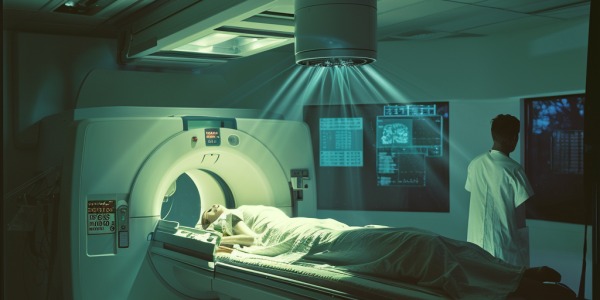Promising Study Aims to Reduce Radiation Treatments for Prostate Cancer
A groundbreaking study at The Davidoff Comprehensive Cancer Center aims to reduce radiation treatments for prostate cancer from five to two, enhancing patient care and outcomes. Prostate cancer, prevalent among men, could see improved management through this innovative approach, potentially transforming treatment protocols globally.
Study Shows IMRT Superior to 3D-CRT for Lung Cancer Treatment
Learn how intensity-modulated radiation therapy (IMRT) can benefit patients with non-small cell lung cancer (NSCLC) compared to 3D-conformal radiation therapy (3D-CRT). A recent study from The University of Texas MD Anderson Cancer Centre highlights the accuracy and reduced adverse effects of IMRT, recommending its standard use for locally advanced, unresectable NSCLC. Lead author Stephen Chun, M.D., emphasizes the significance of IMRT in improving treatment outcomes for patients with lung cancer.
Robot-Controlled Radiotherapy Shows Promise in Treating Age-Related Macular Degeneration
Robot-controlled radiotherapy shows promising results in reducing the number of injections needed for patients with age-related macular degeneration (AMD). With potential cost savings and improved patient experience, this innovative approach could revolutionize the treatment of this prevalent eye disease, offering hope for better outcomes and enhanced quality of life.
New Approach to Treating Prostate Cancer Shows Promise in Research Study
Learn about a groundbreaking new approach to treating prostate cancer by inhibiting Stat5, a protein that promotes cancer growth. Dr. Marja Nevalainen’s research suggests that targeting Stat5 could offer a safer and more direct treatment option compared to traditional therapies, potentially reducing the risk of developing castrate-resistant prostate cancer.
Neoadjuvant Radiotherapy Shows Promise in Breast Cancer Treatment
Learn about the study evaluating the survival outcomes of neoadjuvant radiochemotherapy (NARCT) in early breast cancer patients undergoing breast conserving surgery (BCS) or immediate breast reconstruction (IBR). Discover how neoadjuvant radiation therapy (NART) compares to post-operation radiation therapy (PORT) in terms of breast cancer-specific survival (BCSS) and overall survival (OS) for patients aged 80 years or younger with unilateral T1-T4 invasive ductal breast cancer.





